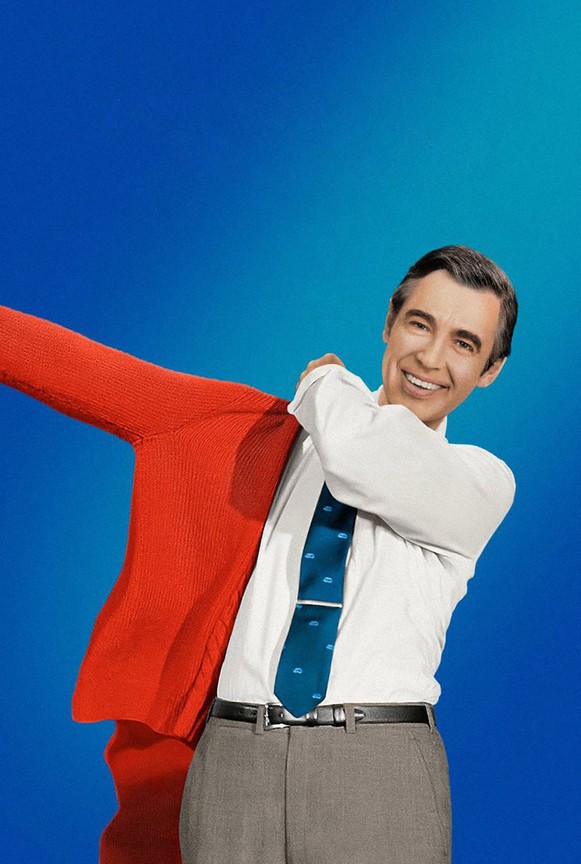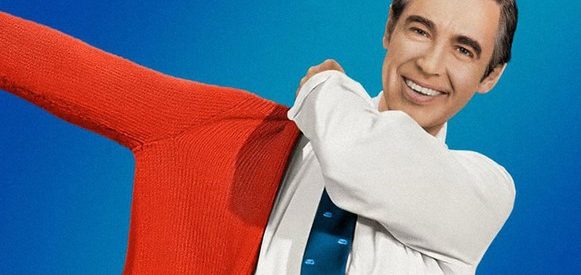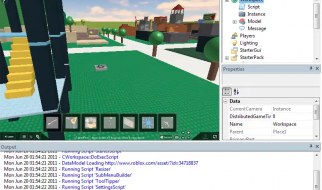Nicholas Ma appeared on Mr. Rogers? Neighborhood twice as a child with his father, cellist Yo Yo Ma. Now he has produced a documentary called Won?t You Be My Neighbor? about Fred Rogers. It is a deeply moving tribute not just to the beloved PBS star but to kindness, patience, and listening. For our interview, Ma greeted me wearing a Mr. Rogers-style sweater and a Mr. Rogers-style neighborly welcome.

What was it like to go on the show?
So you?re watching television and you see a guy who is about six inches big and you are transfixed (at least my sister and I were) and then to have the opportunity to meet him is sort of heady and when you get there and he is 6 feet tall or something and he is three dimensional and in color it really takes you by surprise. I was very scared. It was one of those quintessentially Fred moments of grace where he just took his time. He didn?t come rushing up to me to say hello or anything. He let me find my way to him in my own time. Probably much to the annoyance of the producers it took me a little while to get comfortable and really understand how to approach him as a person and not just to listen to him as a neighbor on television.
I was very excited about this piece of music that I was going to play on the show with my dad ? it?s my favorite thing in the world. The only two times I?ve ever performed publicly with my dad were on Mister Rogers and I think only he could?ve convinced me to do it. I just remember a feeling that he gets inside your personal space a little bit.
Right, your father said that, too, in the movie.
Yes, it is something he and I both talk about. It?s this very firm request to be vulnerable because inside that space to be anything other than vulnerable is really hard. And there?s something beautiful and scary about that but I think it?s one of those little hints at the intensity that he wielded as a person.
Do you think he was more vulnerable with children than he was with adults?
I think he was very able to be vulnerable. But I think he was also very deliberate. We think of vulnerability as being out of control but I think he felt that being vulnerable was a place he could still feel in control. Even when he says, ?It?s much easier for me to say, ?I?m sad. Could you give me a hug?? through Daniel Tiger?s lips, we see he says it as himself, too.
I thought his most vulnerable moment in the movie was with Koko, the gorilla who used sign language to communicate. They were in each other?s laps.
That is the ultimate vulnerability. I think you can pair it with another moment of vulnerability, which is the assassination special, helping kids understand what the word meant after Bobby Kennedy was killed. You hear his voice quaver and you see he?s playing with this little car rolling back and forth almost like he is self-soothing himself and you realize he had been on the air for less than a year. He was trying to do something incredibly hard which is to figure out how to talk to families about this extraordinary loss. I think it?s a nice complement to this vulnerability with Koko which is vulnerability is a source of strength versus a source of weakness.
You had nearly 1000 hours of archival material, which had to be a documentarian?s dream, but also daunting. The film is beautifully edited, with so many great parallels in the clips.
We have an amazing assistant editor who watched every single episode and we have two amazing editors as well. We realized that there was a conflict was between this world that he creates in Mister Roger?s Neighborhood and the way the world is moving outside of the neighborhood and that comes through in the way we edited. It?s always about does this world that feels almost utopian in Mister Roger?s Neighborhood not because there isn?t conflict but because it?s conflict that is managed and thought through ? can that/does that exist, does that still carry weight as the world seems to spin less into more dystopia?
So did working on the film affect the way that you and the crew all interacted with each other? Did you find yourself becoming nicer and more patient?
Absolutely!
It is this reminder that we actually do have a lot of control over the way we engage with people in our lives. There are a lot of things we don?t have control over and some of those things are very scary but there are a lot of things we do have control over and we can assert that control about being kind and being loving with each other.
And it is very moving that we get to see Fred Rogers evolve in his acceptance of a gay colleague.
On one of the very early episodes King Friday sings a song ? ?Down with the changers, down with the changers! We don?t want anything to change.? One of the lessons of Fred in the very small and the very big is that change is something we do not need to be afraid of. It?s something that we can embrace, but that doesn?t mean that it?s easy. It wasn?t easy for him and it took him some time to figure it out. I think it?s a mark in one?s favor to be able to change and to continue to see the world in different ways.
Fred Rogers was an ordained minister. How do you think that is reflected in the content of the show?
It was always there; a great Catholic philosopher Henri Nouwen was famous for saying ?you are all the beloved sons and daughters of God.? That is almost a direct antecedent to Fred saying, ?You are my friend, you are special, what?s within each of you is something special.? Fred knew better than to say that his Presbyterian theology was what should animate the show because not everyone comes from a Presbyterian faith but at the same time it was what powered his belief in the shows? values.


